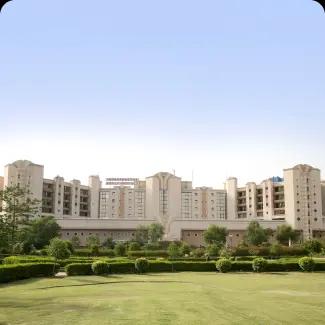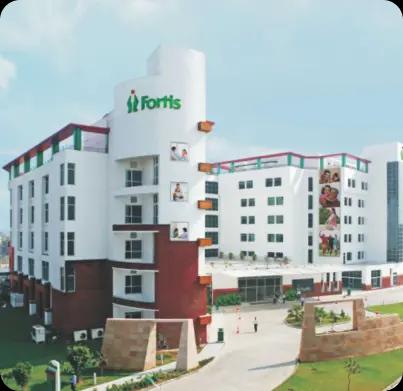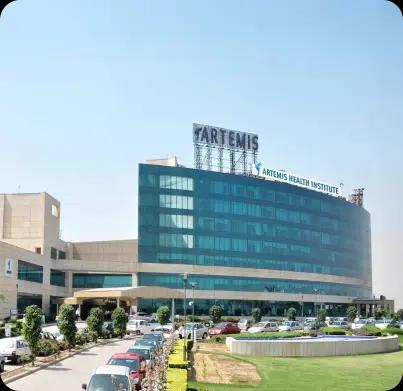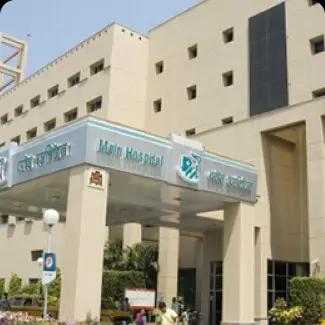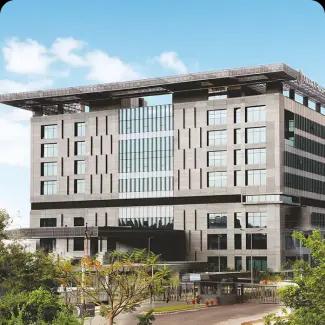
Travel to India's best hospitals for Critical Care
Critical Care
Easy Medical Visa Approvals
Comprehensive Treatment Plans
Multi-Language Support
Travel Booking Assistance
Critical care, also known as intensive care, is a branch of medicine that focuses on the diagnosis, treatment, and management of life-threatening conditions requiring comprehensive care and constant monitoring. It is typically provided in specialized hospital units called Intensive Care Units (ICUs). These may include conditions like heart attack, respiratory problem, accidental cases, and organ failure. Contact us for expert advice and consultation with leading critical care medicine doctors in India.

Karetrip is now NABH-accredited!
Common Critical Care treatments
Get treated by leading doctors in India
Plan your healthcare journey with Karetrip!
Your journey to good health begins here

Accredited Hospitals
Nationally accredited hospitals for high-quality care

Multi-language Support
Convey your needs in the language you're most comfortable in

Travel Booking Assistance
Seamless booking assistance for your healthcare journey

Karetrip is now NABH-accredited!
This assures you of unparalleled quality and a seamlessly managed medical travel experience.
Partnered with India’s Biggest Hospitals
Know more about Critical Care Department

Critical care, also known as intensive care, is a branch of medicine that focuses on the diagnosis, treatment, and management of life-threatening conditions requiring comprehensive care and constant monitoring. It is typically provided in specialized hospital units called Intensive Care Units (ICUs). These may include conditions like heart attack, respiratory problem, accidental cases, and organ failure.
India’s Best Hospitals are Partnered With Karetrip
Access World-Class facilities from top Hospitals across India
Consult with India’s most experienced doctors
Experience premium care from India’s leading specialists
Commonly Asked Questions
Who are the healthcare professionals in the Critical Care Department?
What types of equipment are used in the Critical Care Department?
What are common symptoms indicating the need for critical care?
What diseases are treated in the Critical Care Department?
How are respiratory failures managed in critical care?


"I had a successful surgery at Fortis Escorts Hospital, and it was all thanks to Karetrip's help in finding the right hospital for me. The entire process was smooth and stress-free, with Karetrip handling all the arrangements and answering any questions I had. The medical team at the hospital was outstanding, and the facilities were top-notch. I highly recommend Karetrip to anyone looking for a tension-free healthcare experience."
Read MoreFatima
Chattogram


"Thanks to Karetrip, I got connected with MAX Hospital in New Delhi. The team guided me through every step – from finding the right doctor to handling travel and visas. They made a daunting process feel like a breeze. The care I received at MAX Hospital was outstanding, and I can't thank Karetrip enough for making it possible. They truly put patients first and go the extra mile to ensure a smooth healthcare journey. I'm grateful beyond words!"
Read MoreHasan
Dhaka


"At first, I was unsure about having a medical procedure done in a foreign country. However, Karetrip's team at Indraprastha Apollo Hospital made me feel much better. The hospital was very clean, modern, and had everything they needed to help me. The staff were very kind and did everything they could to make me feel comfortable. I'm really happy with how my treatment turned out, and I appreciate Karetrip for making it easy and stress-free."
Read MoreImran
Sylhet
 Google Reviews4.9/5
Google Reviews4.9/5




I had a successful surgery at Fortis Escorts Hospital, and it was all thanks to Karetrip's help in finding the right hospital for me. The entire process was smooth and stress-free, with Karetrip handling all the arrangements and answering any questions I had. The medical team at the hospital was outstanding, and the facilities were top-notch. I highly recommend Karetrip to anyone looking for a tension-free healthcare experience.
Fatima
Chattogram
 Google Reviews4.9/5
Google Reviews4.9/5







